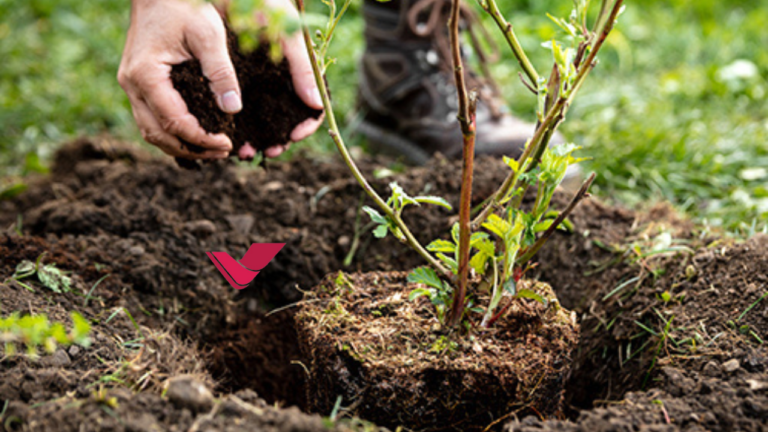Engaging in plantations during the summer can be incredibly rewarding, offering many benefits that extend far beyond the aesthetic appeal of lush greenery. From enhancing environmental health to improving personal well-being, the advantages of summer planting are numerous and profound. This article delves into the myriad benefits of plantation in summer, providing a comprehensive overview of why this activity is beneficial for our surroundings and ourselves.
Cooling Effects and Energy Conservation
One of the most immediate benefits of plantation in summer is the natural cooling effect it provides. Plants and trees are crucial in reducing temperatures, primarily through transpiration, releasing water vapor into the air, and cooling the environment. This natural air conditioning can significantly reduce the need for artificial cooling systems, decreasing energy consumption and lowering utility bills. Moreover, strategically planted trees can provide shade to buildings and paved areas, reducing ambient temperature and minimizing heat islands in urban settings.
Environmental Benefits
The environmental advantages of summer plantations are vast. Trees and plants act as natural air purifiers, absorbing pollutants and filtering particulates out of the air. They also play a crucial role in carbon sequestration, capturing carbon dioxide from the atmosphere and helping mitigate climate change’s effects. Furthermore, vegetation contributes to biodiversity by providing habitats for various wildlife species, creating a balanced ecosystem.
Soil Preservation and Water Conservation
Plantation enhances soil quality and prevents erosion. The roots of plants and trees stabilize the soil, reducing the impact of heavy rains and preventing sediment runoff into water bodies. In addition to preventing erosion, vegetation helps conserve water. The canopy of trees slows down rainwater, allowing it to percolate into the ground and replenish groundwater supplies. This process is particularly beneficial in summer when water resources can become strained.
Health and Well-being
Engaging in plantation activities during the summer can have significant health benefits. Gardening and tree planting are physical activities that can improve cardiovascular health, flexibility, and strength. Moreover, the connection with nature and the outdoors has been shown to reduce stress, enhance mood, and improve overall mental well-being. The presence of green spaces in urban areas has been linked to reduced rates of anxiety, depression, and other mental health issues.
Educational Opportunities
Summer Plantation offers excellent educational opportunities for individuals of all ages. It provides a hands-on learning experience about the natural world, botany, ecology, and environmental stewardship. For children and young adults, planting activities can foster a sense of responsibility, cooperation, and respect for nature. Educational institutions can incorporate plantation projects into their curriculum to enhance student’s learning experience and instill a sense of environmental awareness.
Economic Advantages
The benefits of summer plantations extend to the economic realm as well. Landscapes enhanced with trees and plants can increase property values, making investments in greenery financially beneficial. Additionally, reducing energy costs due to natural cooling contributes to economic savings. In rural areas, plantation projects can create employment opportunities, particularly in agriculture, horticulture, and environmental conservation.
Community Engagement and Social Cohesion
Plantation activities can catalyze community engagement and social cohesion. Community gardens and tree-planting initiatives provide a platform for neighbors to come together, fostering a sense of community and shared purpose. These activities can bridge social gaps, encourage cultural exchange, and build stronger, more resilient communities. In urban areas, where green spaces can be scarce, community plantation projects can transform underutilized lands into vibrant, shared spaces that promote social interaction and community well-being.
Aesthetic Appeal and Recreational Spaces
Beyond the practical benefits, the aesthetic appeal of lush, green environments cannot be overstated. Green spaces enhance the beauty of our surroundings, creating pleasant and inviting areas for recreation and relaxation. Parks, gardens, and green belts offer spaces for physical activity, social gatherings, and quiet contemplation, contributing to an area’s overall quality of life.
Conclusion
The benefits of plantation in summer are multifaceted, encompassing environmental, health, economic, and social aspects. Individuals and communities can contribute to a healthier, more sustainable, and more enjoyable living environment by engaging in planting activities. Whether it’s reducing urban heat, improving air quality, fostering community engagement, or enhancing physical and mental well-being, the positive impacts of summer plantations are profound and far-reaching. As we continue to face environmental challenges, the role of plantation in shaping a sustainable future becomes increasingly essential, underscoring the need for collective action and continued commitment to our planet’s health.
Read More: Fungus Treatment: An In-depth Guide


